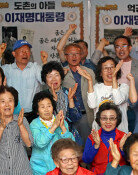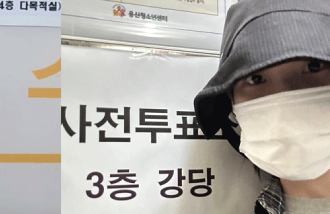Korea Leads Division Independently and Considers an Increase of Combatants
Korea Leads Division Independently and Considers an Increase of Combatants
Posted November. 18, 2003 22:48,
In follow-up discussions with the United Sates on additional deployment of troops, the government will maintain the scale of dispatched troops at 3,000, but will be flexible concerning the composition of the troops.
A central issue in a discussion with the U.S. is the scale of the infantry that will be responsible for maintaining the security outside barracks besides protecting Korean noncombatants, a government high-ranking official said Tuesday. We will flexibly discuss relevant issues including ways to increase the number of the infantry troops.
The U.S. stated that it would be difficult for Korean troops to lead a multinational division independently even though there would be 3,700 Korean soldiers (including troops already sent to Iraq) if the composition was centered on noncombatants, he added. We are considering adjusting the composition of combatants and noncombatants so that the Korean forces can lead a multinational division independently.
For now, only the scale has been discussed (with the U.S.), and nothing has been decided upon regarding the composition, Defense Minister Cho Young-kil said in front of the National Assembly that day. We have enough engineers but not enough medics, he added.
The government will also actively carry out negotiations regarding relocation of the U.S. Yongsan Garrison. The issue was not resolved at the annual Security Consultative Meeting held on Monday. The U.S. is strongly pushing for the plan to relocate the ROK-U.S. Combined Forces Command and United Nations Command at Yongsan to rear echelon areas in Osan and Pyeongtaek. So there is a possibility that the issue will be concluded that way, said a government source.
In the meantime, the United States reportedly held a meeting among high-ranking officials at the security and defense department right before it asked Korea in early September to send additional troops to Iraq.
Most participants in the meeting are known to have opposed a request for dispatch, since they judged that a request was likely to be rejected considering anti-Americanism in Korea and the mood in the Bluehouse, the government source said. The Bluehouse is the counterpart of the White House.
The U.S. administration however, had to ask for the dispatch considering that the U.S. Congress would ask why it did not call for the dispatch from Korea, where 37,000 U.S. Forces were stationed, he explained.
Those who are outside the U.S. administration are thinking, why make the matter complicated when it can just send 10,000 soldiers out of 37,000 U.S. Forces in Korea? he added.
Jeong-Hun Kim Young-Sik Kim jnghn@donga.com spear@donga.com






![[속보]김문수 “역사적 큰 죄 지어…국힘 민주주의 사명감 부족”](https://dimg.donga.com/c/138/175/90/1/wps/NEWS/IMAGE/2025/06/04/131746434.1.jpg)
